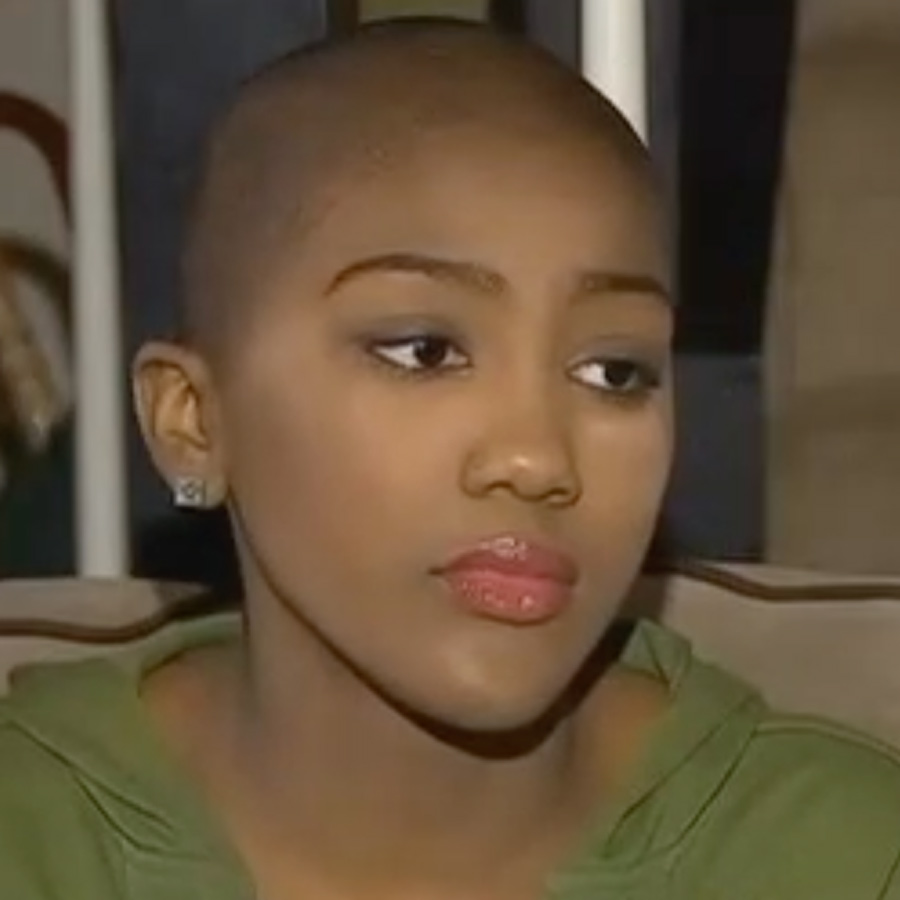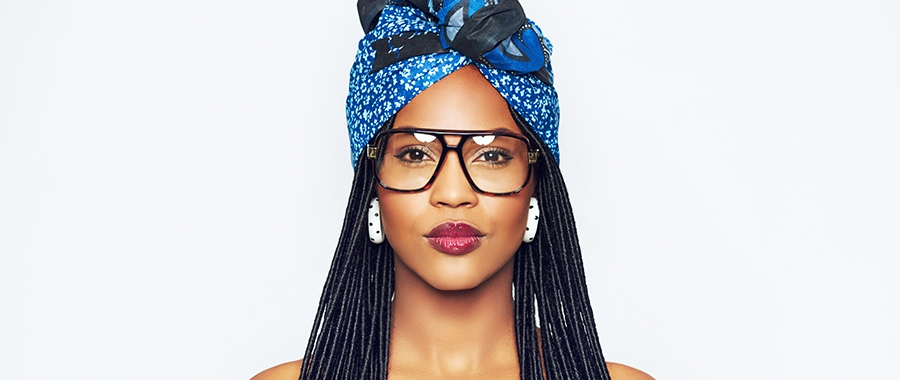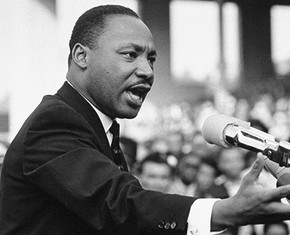The views expressed in our content reflect individual perspectives and do not represent the authoritative views of the Baha'i Faith.
I recently read a news article about how a young Black woman named Lauren Williams had been assaulted at a Tennessee high school.
As the result of a $5 bet, one of her peers aggressively ripped her wig straight off her head, causing her to be hospitalized for whiplash. The incident was caught on Snapchat, and later publicized. Her tormentors not only recorded the incident, but also followed her to the bathroom and recorded her from over the stall as she cried and begged for her wig back.
After this ugly display of disrespect, Lauren decided to shave her head. She wanted to let people know that this incident would not stop her from embracing herself the way she is.

Lauren ’Lulu’ Williams
This story about Lauren, also known as Lulu, reminded me of all the young Black girls made to be a spectacle at school, or even sent home and suspended from school, because of the ways we wear our hair. In Florida, a 16-year-old student was told that her natural hair was against school policy, and the administration demanded that she needed to “get it done.”
A school in Boston removed two 15-year-old girls from the sports teams they played on, told them they weren’t going to be allowed to attend prom and even threatened to suspend them if they didn’t remove their box braids. The school argued that hair extensions were prohibited because they can often be expensive, and might serve as a barrier between students of different socioeconomic classes. This fails to acknowledge that braids are historically a popular style in the Black community, protect hair from potential damage, and don’t always have to be expensive.
Lulu’s story reminds me of how schools, where we go to learn, are often hostile environments for Black girls and our hair. In 2016, A South African school repealed a policy that prohibited and punished students for wearing their hair naturally, in locs, cornrows, and loose braids after students protested, drawing international attention to the issue.
This discrimination against Black women’s hair is intricately worked into the history of America. In 1785, the Tignon Law was passed in Louisiana, which mandated that all Black women had to wear a tignon, or a headwrap, in public. One of the first things done to enslaved people when they reached the Americas was forced hair removal—because shaving enslaved Africans’ hair erased their indigenous culture. Lulu comes from a long line of people who have had to fight for their right to simply do what they want with their hair, and exist in public safely.
Discrimination and prejudice are forbidden in the Baha’i Faith, and the Baha’i writings explain that blindly harboring prejudice stunts the mental growth of an individual:
… the breeding-ground of all these tragedies is prejudice: prejudice of race and nation, of religion, of political opinion; and the root cause of prejudice is blind imitation of the past—imitation in religion, in racial attitudes, in national bias, in politics … for blind imitation of the past will stunt the mind. But once every soul inquireth into truth, society will be freed from the darkness of continually repeating the past. – Abdu’l-Baha, Selections From the Writings of Abdu’l-Baha, pp. 247-248.
I went to high school in the same county as Lulu. The friend of mine who sent me the article about her lives in the community I grew up in—and is a mother of four children who attend the same school district where this incident happened. My friend reached out to me about this story, wondering what we could possibly do about it. She understood that what happened to Lulu was not only traumatizing to Lulu, but also sends a message to her children and to the entire community. It says that if you are different, you are not welcome here, and if you are a Black woman, you are not respected here.
I’ve spent a lot of time thinking about ways to coordinate letters to the administration, put pressure on the school to include mandatory anti-bias workshops for staff faculty and students, and even seek justice for the student who assaulted Lulu. Frustrated that the culture in my hometown doesn’t seem to have changed, I’m saddened that this violent incident didn’t even surprise me much.
However, despite everything I felt, I also couldn’t stop thinking about Lulu and how brave she has been through the whole thing.
Many of the accounts of what happened to Lulu mainly focus on what her peers did to her, and not what she made out of it. As a Black woman, I’m interested in her response. What happened to her is unjust, and while she still deserves justice, she was also able to come out of the experience in a way that historically wasn’t an option in the past. Lulu stands on the shoulders of generations of Black women who have come before her. Reacting with dignity and her own internal sense of justice against her bullies in such a meaningful way empowers her—and empowers the people who can relate to her story.
Sometimes, if society doesn’t offer justice to the marginalized and the downtrodden, we have to create our own ways of finding it. Ultimately, what Lulu did reminded me of the Baha’i standard of justice:
Justice is not limited, it is a universal quality. Its operation must be carried out in all classes, from the highest to the lowest. Justice must be sacred, and the rights of all the people must be considered. Desire for others only that which you desire for yourselves. Then shall we rejoice in the Sun of Justice, which shines from the Horizon of God.
Each man has been placed in a post of honour, which he must not desert. A humble workman who commits an injustice is as much to blame as a renowned tyrant. Thus we all have our choice between justice and injustice.
I hope that each one of you will become just, and direct your thoughts towards the unity of mankind; that you will never harm your neighbours nor speak ill of any one; that you will respect the rights of all men, and be more concerned for the interests of others than for your own. – Abdu’l-Baha, Paris Talks, pp. 159- 160.
Lulu doesn’t represent all Black women in her decision, but she represents a shift in the story of the regulation of Black women’s hair, similar to the South African schoolgirls whose protests against their school’s institutionalized racism resulted in policy change. While her assaulters were proponents of injustice, she found justice in her own way. As inspiring as this is, I hope to someday live in a society where the responsibility of speaking up for each other is shared, and not simply left on the shoulders of those who are most marginalized.
















Comments
Sign in or create an account
Continue with Googleor